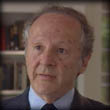 |  | | 
 |  | 
Dr. Matthew Meselson Ph.D. is a molecular biologist
who has written extensively about biological agents and is the Thomas Dudley
Cabot Professor of the Natural Sciences in Harvard University's Department of
Molecular and Cellular Biology.
|  |  |

The Sverdlovsk incident was a turning point - immediately the Ukraine and
the United States started complaining to the Soviets and asking for more
information. Why was it so difficult to analyze exactly what had taken place
there?
We had no conclusive evidence. But we knew that here was an anthrax operating
in the very same part of the city as a military microbiological facility. So,
just on the basis of probability, it seemed likely that this was the fault or
the activity of the military base. On the other hand, there were certain things
that we didn't understand. For example, there were cases that showed up as
late as six weeks after the first cases, and we had thought that the incubation
period for anthrax was only a few days. Well, it would be easy to see how if it
was contaminated meat, and that was the way in which gastrointestinal anthrax
had occurred and still does occur, particularly in Russia and the Ukraine even
today, it could take six weeks because you put the meat in the refrigerator and
some of it you don't eat for two weeks. So we didn't understand everything. We
thought that it was likely that this was an airborne event, but we weren't
absolutely certain.
It wasn't until we took a team of independent scientists ... and went to
Sverdlovsk and we interviewed 43 families and asked them where the person who
they had lost ... worked, where they were in the daytime. Then when we plotted
those locations on a map, they all fell on a very narrow straight line, a very
narrow zone, and it turned out that the wind was blowing in that very direction
on one of the days just before the first cases. [The] line went down 50
kilometers south of the military facility along which there were villages where
animals had died of anthrax and one end of this zone was the military facility.
That answered it unequivocally.
Yeltsin had just before said that it was the fault of the government, but he
didn't say what his evidence was. We know what his evidence was and it was
very poor. He may have known ... had other sources, but the documents that went
to him, we'd seen them, and they were very flimsy. So it wasn't until we
actually could go in and do epidemiology ... I, myself, did not have my mind
made up and I think the team that I took also went there open minded. But when
we finished our work, it was very clear.
It took over a decade to come up with the final results. Did we lose ground
by the amount of time that was spent arguing whether the Soviets had a program
or not?
Yes, I'm sure we lost ground in the sense that they continued and increased and
built these very large facilities, which the present managers say they never
used. They were standby [facilities], but nevertheless they were huge
facilities. We know of one for sure because it's not in Russia anymore, it's in
Kazakhstan, and we can go there. So in the sense that they went right ahead and
created a very large base for an offensive program.
Do you then feel to some extent duped by the Soviets because of their
arguments throughout this period of time that they were obeying the treaty,
that they had no need of an offensive program?
No. I think that I approach these matters in the way that I think a technical
person should. Political people have to make a judgment on the basis on what
evidence is available as to what the right course of action is. Technical
people should say, "Here is a situation as I understand it, and it is possible,
but not proven that, dot-dot-dot." I never said that the Soviets didn't have an
offensive program. What I said, in particular, with regard to the Sverdlovsk
facility, and what I wrote and what I testified before the Congress, was that
it was plausible that it was due to bad meat, but that they should admit
independent, private scientists. Beginning in early 1980s, I attempted to
bring private scientists there with the assistance of my contacts in our
intelligence community, which had told us exactly where to go and what to look
for. But it wasn't until 1992 that I was able to bring them there. And I've
always, very energetically, said that it is essential that the Soviets, and now
the Russians, admit independent investigators to come and look, that
transparency is the only guarantee. But it is true that I did argue, and I
think justifiably that at that time, the evidence we had as to what caused the
accident at Sverdlovsk was not yet clear. And there were people in our own
government who thought the same. In hindsight, we now know that it was an
airborne accident. We still don't know what they were doing there. They have
still not told us. Boris Yeltsin didn't say what the cause of it was. And our
investigations only show that it was airborne. We were unable to get inside the
facility.
 | |  |